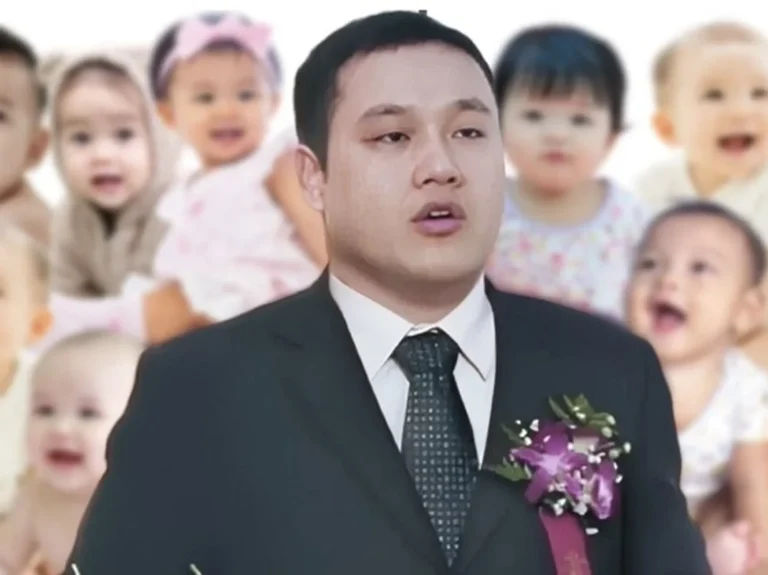Kong Keng, a 2-year-old kid from Khnor village in Cambodia, is being hailed as a miracle baby with special healing powers. Thousands of people are traveling from as far as Laos and Vietnam, believing that even a glimpse of Kong will help cure them of their ailments. He appears to be the last ray of hope in a nation that doesn’t exactly have the world’s best healthcare system.
Hundreds of people throng outside Kong’s single-room wooden home every single day. It’s a motley crowd of handicapped people in wheelchairs, and ailing, dying patients on stretchers. Phat Soen, Kong’s 21-year-old mother, brings the boy out and places a row of eucalyptus balm bottles in front of him. She then guides his hand over each bottle – his touch is believed to transfer healing powers to the balm.
The toddler’s healing powers were discovered by an accidental healing ‘miracle’ that occurred a few months ago. “The miracle happened to my brother,” said Sung Bahn, Kong’s uncle. “He was paralyzed from the waist down after a motorcycle accident. Doctors couldn’t cure him and neither could the Kru Khmers (traditional Cambodian healers).”
Photo: VICE
“He went to visit his nephew and the boy asked him, ‘What’s the matter?’ The man told him that he couldn’t walk, so the boy found some leaves to make into a tea for the old man to drink. He drank the tea, got up, and began walking perfectly.”
Naturally, such a miraculous event couldn’t remain a secret for long – the whole village was buzzing about it, and within two weeks the story was covered by national newspapers and TV channels. “Twenty thousand people have come here in the last month hoping to be cured,” said village chief Sou Hen. “Over 1,000 people have received effective treatment from the magic boy so far. I have seen people who were dumb speak, and others who were paralyzed get up and walk.”
Photo: VICE
Kong is now practically royalty in the sleepy little village of Khnor. The entire community helps in managing the boy’s visitors. Loudspeakers crackle with regular updates, like:“The magic boy is sleeping, so please keep quiet so he doesn’t get angry.” Or, “The boy is with his mother collecting magic herbs and will return in two hours.” These leaves identified by Kong for their healing properties, after which they are distributed among the ailing people.
The magic boy’s clientele is quite varied – even the district collector made an appearance to get some of the magic leaves for his sick children. “Most people have to wait, but he got some right away because he is the governor,” said Hean Tuk, the governor’s companion. Unfortunately, not everyone is that lucky – some people have been waiting for as long as nine days for a cure.
Photo: VICE
Naturally, the more scientifically inclined people in Cambodia are trashing the idea of the magic boy. But it’s easy to see why the boy has become so popular across the nation. “Cambodian religion believes that spirits can possess people,” said Dr. Jonathan HX Lee, Assistant Professor of Asian American Studies at San Francisco State University. “Illness is experienced as being possessed by a spirit, and that’s why therapy would require some kind of religious ritual.”
And that’s exactly what Kong’s pilgrims believe – that the boy acts as a medium for an elemental spirit with healing powers. “I don’t know why my boy is magic, he just is,” said his father, Bahn Kong, 25. “The child cured his uncle, the news spread and now thousands have come. We give the magic leaves away free of charge, but to get on the waiting list people have to donate $1 to local Buddhist temples. Supplies are limited and sometimes they have to wait a few days.”
The leaves might be free of cost, but a meeting with the Kong himself isn’t. “If they want to see the boy personally, we charge them $2 or $3,” said Bahn. That might not sound like much, but it actually is a big deal in a nation where the average wage is $3 a day. Bahn, who is a rice farmer, earns around $1,000 a year. But his son’s healing powers have earned him $2,500 in the past month alone.
“Some people say we are lying to get money, but that is their belief, not mine,” he said.
Sources: VICE, Cambodia Daily
















